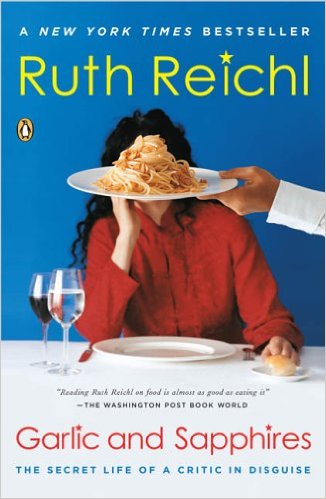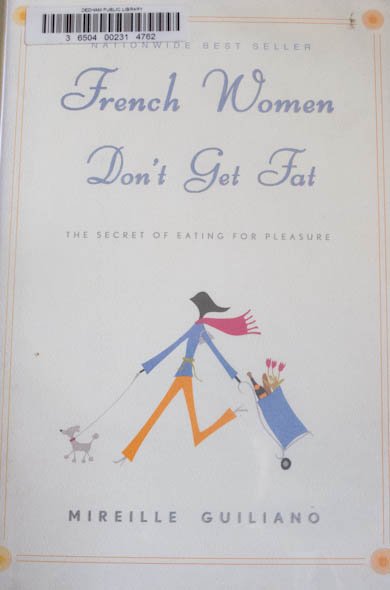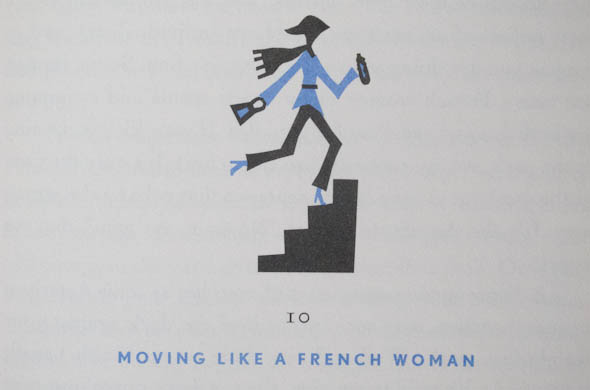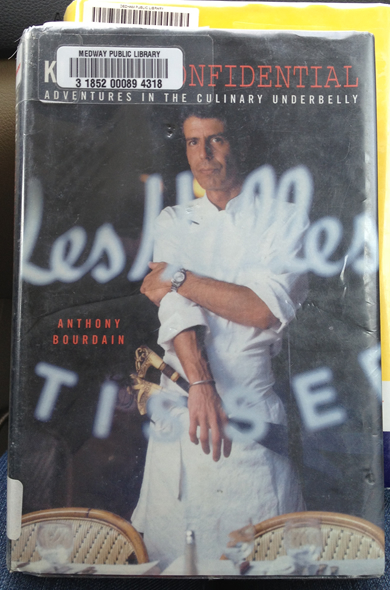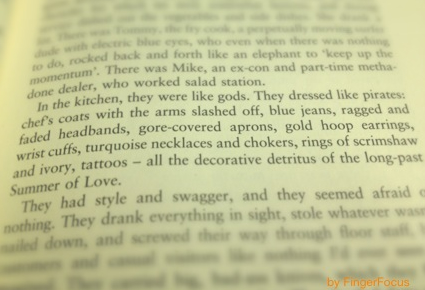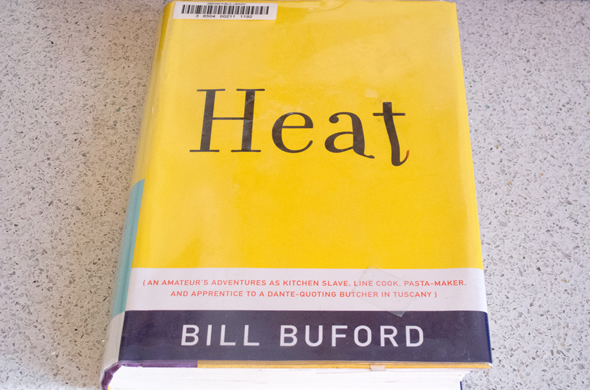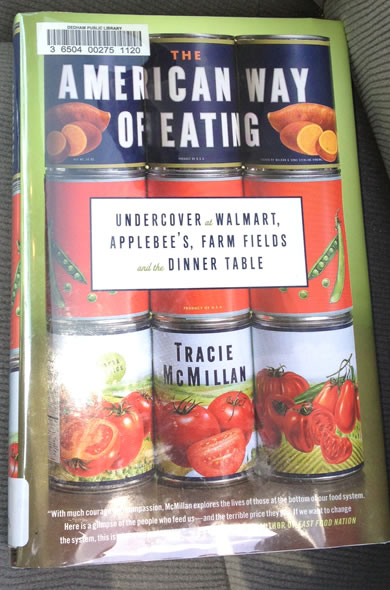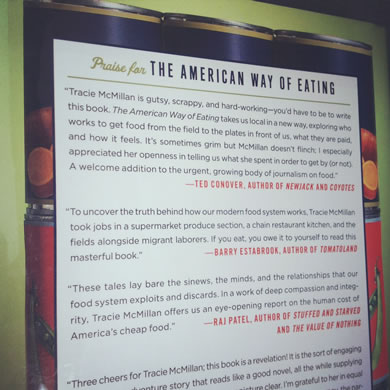I saw French Kids Eat Everything on A Cup of Jo and knew I had to get my hands on it.
Karen Le Billon relays her experience moving her family from Canada to France, where her husband grew up. She had two picky children and recounts their experiences. They learn what lunch is like in French school, how to shop at French markets (the non-supermarkets), and what they wanted to expect from their own children (and themselves).
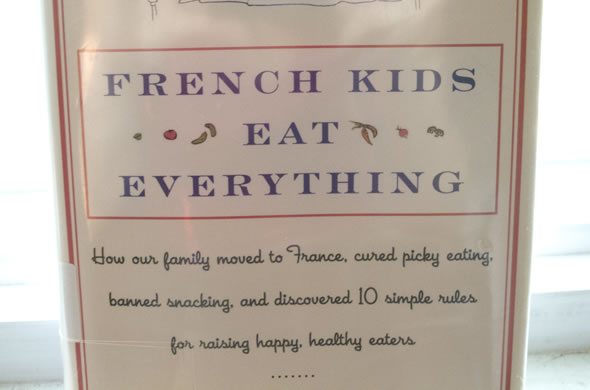
It fascinated me. Before you tell me “it is different when I have kids of my own”, I beg you to hold that thought. I don’t agree. My biggest fear is having children who don’t eat real food.
This family in the memoir finally had to seccum to the French method of exploring food, the parents deciding what was for dinner, and standing firm to “you don’t have to like it, but you do have to try it”. Ahhh! Eureka!
I care about food and I care that my some-day-children learn these lessons. The French are pretty brilliant when it comes to food, and it is quite no-nonsense which I like too. The Le Billon family had to overcome years of feeding whatever the kids dictated to avoid meltdowns.
Her story feels real and emotionally charged. They were in a new country, her husband’s family had different views of their ways of eating (initially), she wasn’t a confident cook, and it was a learning curve for all of them. She was torn between feeling like a dictator and allowing choices to her children.
Here is Le Billon’s interpretation of the French ways of eating (the rules)
1) Parents are in charge of food education.
2) Food is not a reward, punishment or bribe.
3) Parents schedule meals. Kids eat what adults eat.
4) Eat family meals together–and make them feel special.
5) Eat your veggies. Key: Think variety.
6) You don’t have to like it, but you do have to taste it.
7) No snacking. It’s OK to feel hungry between meals.
8) Slow food is happy food. As in, eat slowly.
9) eat real food – treats are ok for special occasions
10) eating is joyful and a time to relax.
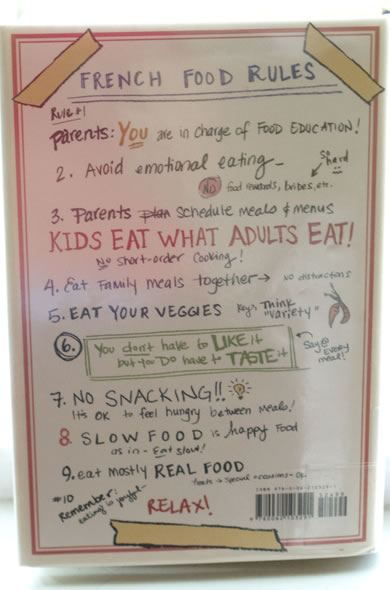
I have a leg to stand on here because I was brought up with a few of these in place from the start. There were no happy-meals for dinner (1). We ate what my parents ate (3). We didn’t have to finish everything but dinner time was a chance to chat. There wasn’t permission to escape from the table. The thing is, we didn’t mind sitting and talking (10).
We snacked but we also weren’t eating fruit roll-ups (9). At Christmas my sis and I each got a grocery-store present which was a highly coveted item we wouldn’t normally have (like pop-tarts, sugary cereal, Little Debbies). Grandma would buy us Cheetos or Fruit Loops but cereal consisted of Cheerios/Chex/Corn flakes/Rice Krispies (9).
I don’t recall getting these lessons drilled into us. It was just what we did. Dinner was together, at the table, without TV/games/phones/etc but with placemats and real napkins (4). Sandwiches had tomatoes on them and weekend breakfast was accompanied by fruit (5). Dinner often included salad first (5). There was always fruit around. Our bread was always wheat/rye/pumpernickel.
My sis and I each had veggies we didn’t like (her: mushrooms, me: peas) but we were allowed to not like something (6). I don’t think we were force fed things or made to stay at the table. I’m not sure when it started but there were expectations about food. Bursting into tears and bawling about not wanting that for dinner would not have been ok. There weren’t tantrums at the checkout line because we could ask for something (though we wouldn’t have questioned a “no”) and sometimes we got to leave with a ring pop, which also kept them special.
I loved that a family I babysat had “babysitter food” which was a treat for the normally real-food-fed-boys (I got to give them mac & cheese and chicken fingers). They had the three bite rule before they could not like something (the 1st to try it, the 2nd to decide, and the 3rd bite to be sure). They definitely knew the grown-up was in charge of the meal.
Wow, I guess when it comes down to it, the R family appears quite French in terms of food. I love that Mr. J and I sit down for meals together. No matter what we’re eating, it is still a chance to chat and eat off a real plate.
French Kids Eat Everything also included their transition back to Canada after their time in France. I don’t judge this family who had to adapt when returning. Hello, North American schools don’t serve a 4 course lunch! Commerce doesn’t stop so everyone can slowly eat lunch with somebody else! North America isn’t like France so I doubt this is something everyone can replicate. The book was really captivating. I was interested that the “rules” weren’t specific to their family or region with research stats to prove it.
I thought this book was really interesting and I hope I’ll follow these someday. I saw the same sort of thing on Cooking Light. I got to see a lot of families food standards and practices after babysitting for, jeez, probably more than 15 families. I just followed whatever their way was, I never once thought my opinion should factor in there.
I was out to dinner at a fun pizza place and was shocked to see the kiddo behind us had pizza without cheese. Hmm. Maybe that is dietary? Then another table had 1 kid at it who got grilled cheese. At a pizza place? I was surprised. I thought what kid doesn’t like pizza? Or melted mozzarella? It was interesting.
enter Tell me, what do you think? Do you think these French Rules would help youth nutrition in general? Do you think these “rules” would work for you/somebody you know? Is eating “like a child” a nature versus nurture? Do you think youth eating behavior is an age thing that he/she will grow out of? Is this the least of your worries for your children? Should kids HAVE to eat what they’re given?
(P.S. Some other foodie books I love: The American Way of Eating; Fortune Cookie Chronicles; Waiter Rant, & The Dirty Life)
